The first night of sleep is under an enormous rock which overhangs our informal outdoor space. A huge sacred rock covered in money, inscriptions, prayer flags and offerings. Pilgrims study it and raise up their eyes to it in wonder. This is our camp and at first it seems ostentatious and a little presumptuous, but as Kandro points out, “it is covered”.
Our camp selected by Kandro, sits beside a mountain creek that is stunning in its numbing cold. Drolma, Kandro’s wife is a blur the moment the bags are set aside.
Water is prepared for tea and a meal is consumed in the blue black of mountain night and hurried blasts of air. Reke/Popeye in a understated show of skill and strength has gathered dead trees and started hacking them into fire-size bits with an archaic and dangerous looking machete. Nomadic pilgrims have set up their meagre tents and sleeping quarters by dazzling orange firelight just beyond our own. Mountains draw their late autumn curtains fast and night comes in with a bang.
Air currents that were an hour ago temperate breezes have become icy breaths that heave down from further above. Sleeping bags are stacked one next to another and a few guffaws, Kandro’s cigarette and some stretching later, our camp is a silent, drafty circle.
Round beams of light and voices bring us into a pre-dawn world. Pilgrims are moving out in legions of bent faith in a five-thirty exodus. Both Michael and I feel the urge to bolt out of sleeping bags and layers and join them. Tseba in his silent benign way warns us – and perhaps the pilgrims themselves – of the pending Pass and the need to sip tea and eat much (‘non sa’). Dro Ge La (Dro Ge Pass) awaits all of our bones and dreams and full stomachs and warm blood are required.
Passes here, like the mountains they lead to and away from, are sacred. Successful (as in functional and fit) pilgrims will pay respects to passes with offerings and prayers for their safe passage. As Kandro mentions dead-eyed, “only fools and westerners do not pay respects to passes”.
At near to 8 am we depart. Every morning wherever my bones happen to be on the road, I pile a palm full of unfermented Puerh into my thermos, and sip away a good half before contemplating the day. Leaving our camp I feel as though we are the last group to make out amidst a dull grey sky that is sullen and a little ominous.
Eventually we catch and pass a group of nomadic women from near Mangkang (Markham) and as we move beyond them I catch glimpse of a very pregnant member of the group wearing wools and a pair of enormous slippers. The faithful bring their yet to be born children for a preemptive dose of blessings. Suddenly, as we climb up a rise, the sky darkens, white pellets of hail (‘tse’da’) begin to pop on my jacket and there stands Dro Ge La, the pass. Its lines are muted by white specs of snow that come down on a diagonal. Only a zig-zagging path with a few brave climbing dots are to be seen, but it is obvious that the world up there is a very different world from the world which I now stand. It feels as though I am looking through a smudged glass into a furious sky.
Tseba’s big frame moves slow and steady but he eyes the pass with something like a challenge. He says little this Tseba, but that makes his actions and murmurings that much more poignant. He has done this pass many times and he pauses leaning his pack upon a rock facing away from the pass as if summoning up strength.
This worship of geographic locations, long part of the animist’s great worship adds a taint of something special: the very forceful elements. Driving up and forward the pass seems to arrive no closer. Winds and their special energies take charge blasting from the south and then a moment later from the west. Snow particles and ice pellets compete for domination. Our group becomes spaced out in a stringy line amidst other ‘ascenders’, with each body finding a pace that can be maintained. Elders, wearing simple low cut shoes creak forward, heads tucked into masks and scarves. Their commitment is unyielding and complete – they will complete the kora.
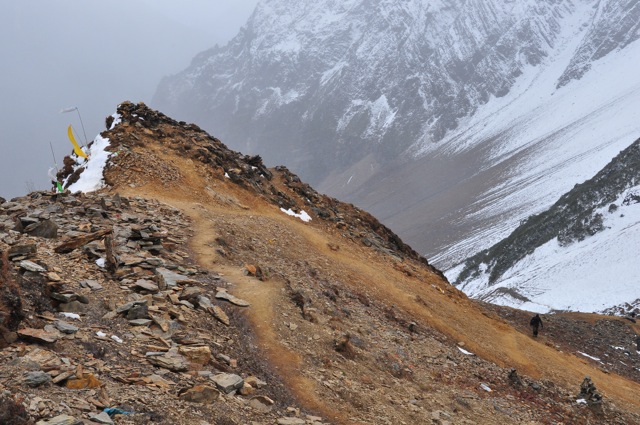
From mid-way up the pass the world around us changes. Michael's ascending frame is down to the right.
The 4,300 metre pass when reached seems to sway with the force of the winds. Despite this, sitting amidst all of the blinding white chaos is a group of chanters issuing out a prayer for the pilgrims yet to make it up, urging them – and myself – onwards – incredible to me this selfless display of solidarity.
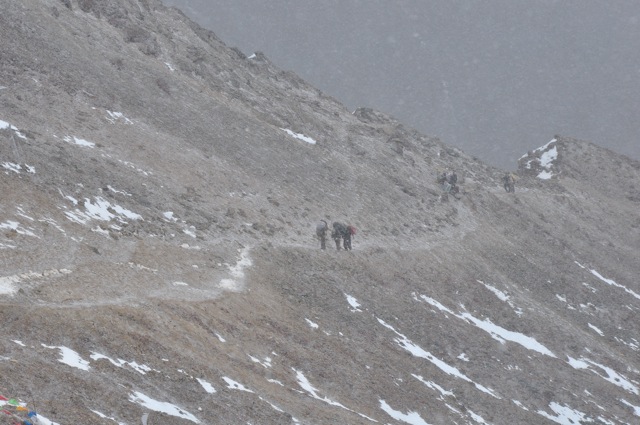
Pilgrims make their way up the path to Dro Ge Pass. A journey that began in a light breeze would finish in a shrieking fury
Winds tear at the pass and its prayer flags and though snow falls it is the frozen sheets and shards of ice that provide the danger. Footing is tenuous and one slip sends a body shooting down hundreds of metres. Michael makes his way up in his steady powerful stride.
One by one our team makes it up. Tsaba refuses gloves, though his hands have swollen and gone purple. Drolma is deep in a mantra, her mouth working busily as she makes it up, bent under her load.
As much as ascents punish and demand from the body, it is the descents that can wreak havoc and injure most. Not twenty metres from the pass Reke (our soft spoken hard-man with the forearms) falls. His fall isn’t serious but his one leg is shaking from cold, fear or both as he tries to right himself. The pitch below him is a 45 degree angle and the path is ice-laden. I manage to get him to right himself and clasp onto a rope…his feet remain unsteady but he putters slowly back to strength.
Kandro is a balanced bull; ungainly but entirely competent; he is never a worry in these environs. His wife Drolma takes small sure steps. Tseba, our big man also takes a fall, shooting down a few metres before arresting his own descent. Every step is the first, the last and the only.
I wonder at some of the ancient bodies making their way up and the pregnant woman of only a couple of hours ago in her slippers. How will they fare amidst all of this power? This question has in the past been answered as I have seen this ferocious commitment before from Tibetan pilgrims. They simply do it. There is no vanity as strong as the belief that one ‘must’ prevail and they, more than most, understand the limitations and forces of their environment.
Strong as our team is, one slip of one single foot and we are all affected. That is what makes these pilgrimages something of beauty and something that binds. There are no solo efforts in the ‘western’ sense here. No glory for speed or sumptuous feats. Bodies and spirits bind together for a common struggle and union…bodies will separate and depart from one another upon completion of the kora. Having said this, the pilgrims have in them huge caverns of strength built into their DNA to perform physical feats that stun the mind on a regular basis.
Descending into warmer valleys we take lunch and butter tea in a structure of plastic and wood beams that struggles with winds. Wind burned faces slurp in noodles and bodies tuck in huddles recovering from the pass. We find out later, that the day has not been without casualties; one woman tumbled off the pass and broke a hip and another pilgrim broke a leg attempting the pass. No roads infiltrate our valley so the injured will have to be carried out or mend here.
We move on further into another forest and end the day the way most days should end…with fire, friends…and of course some tea.

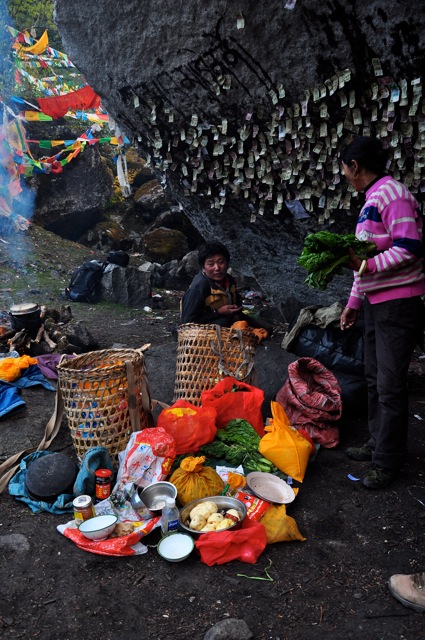
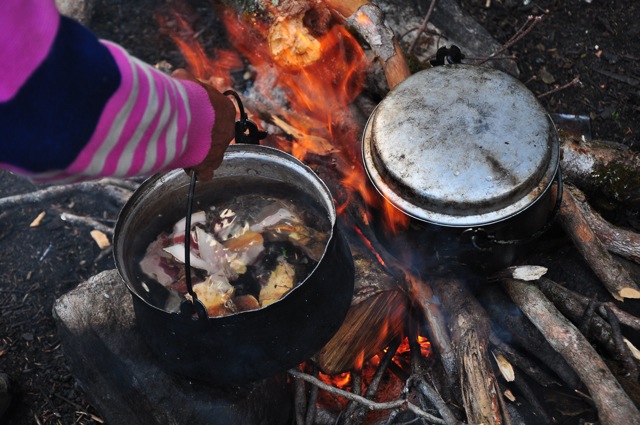
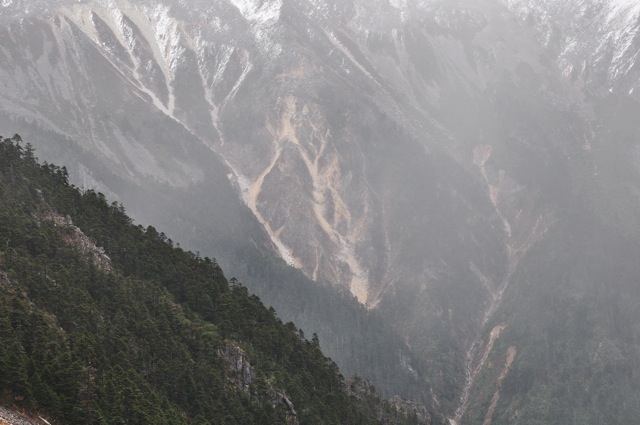
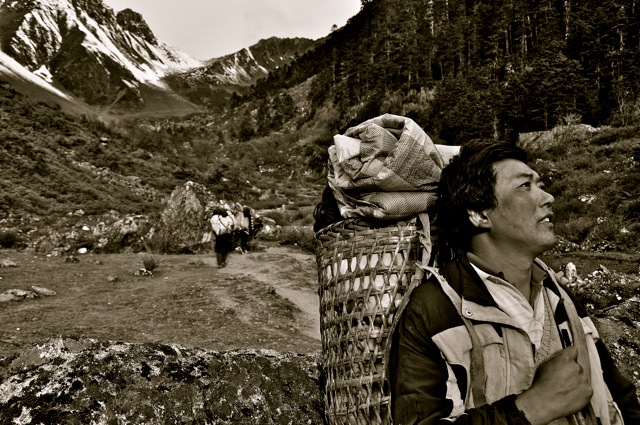
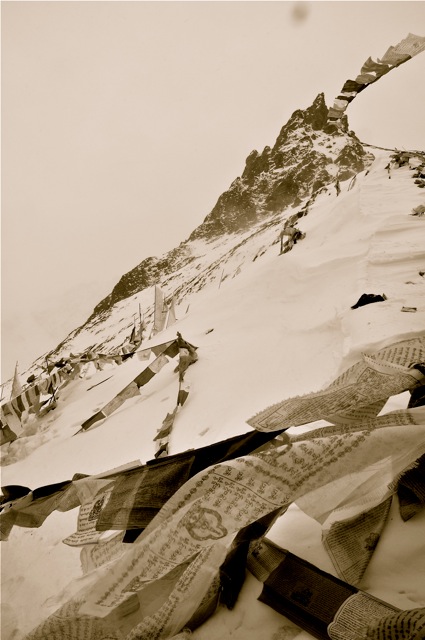
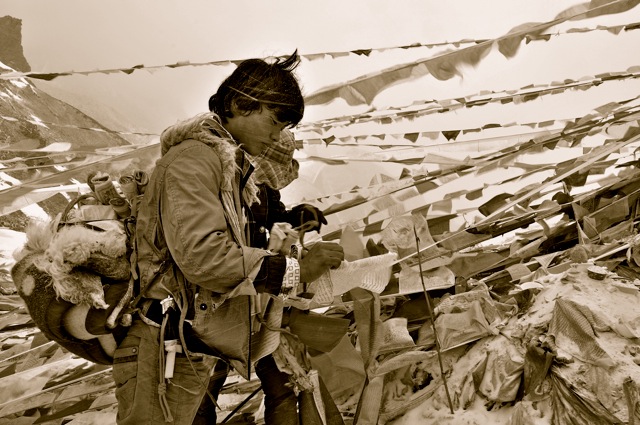
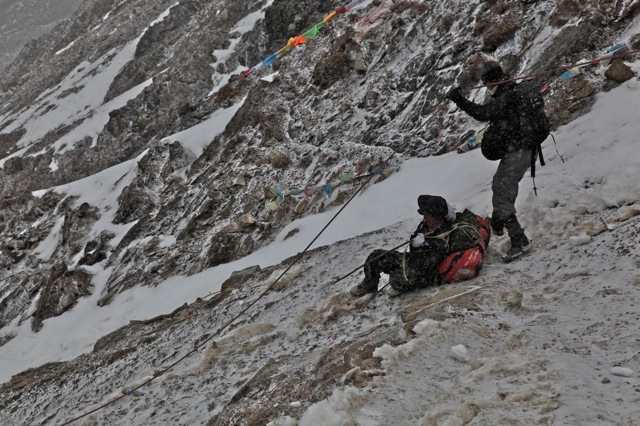
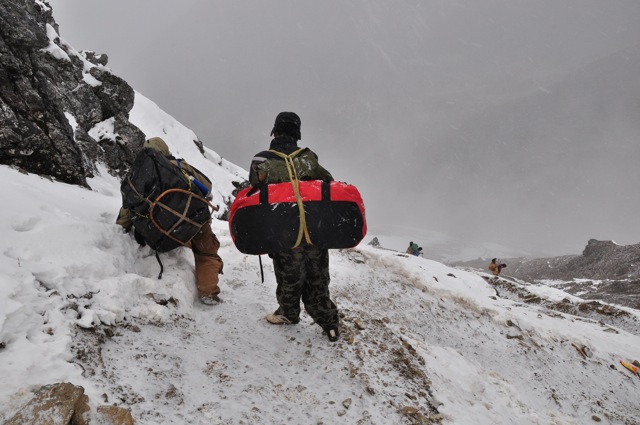
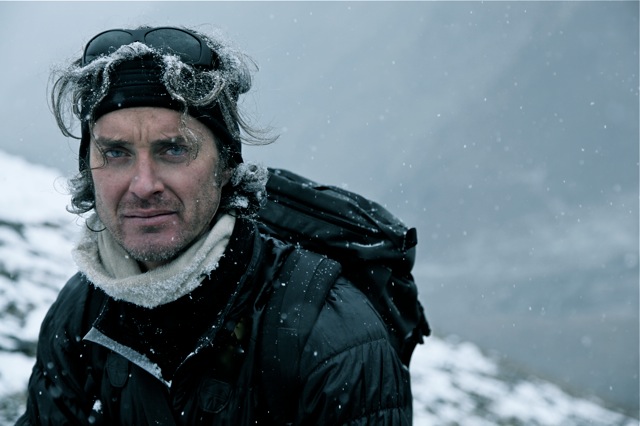
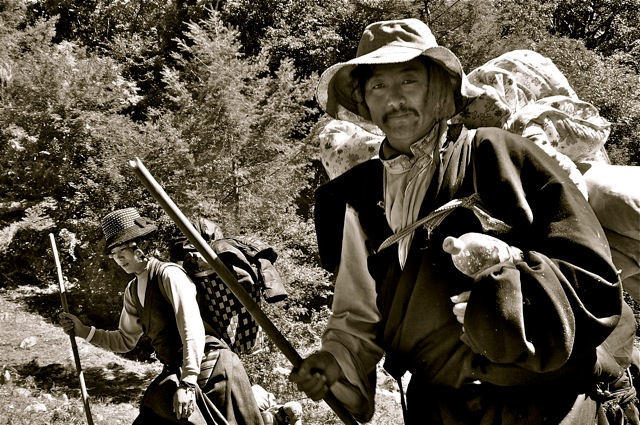
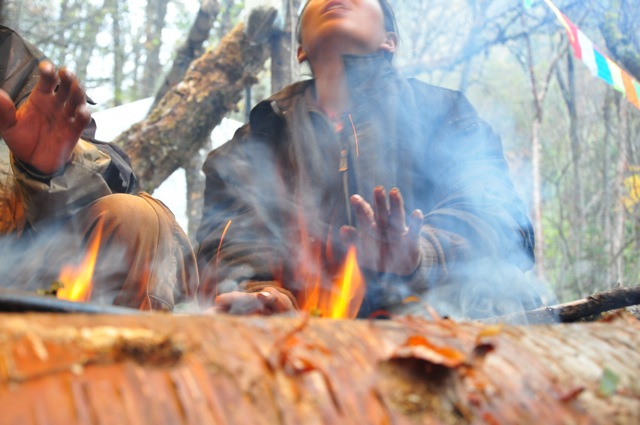
Fascinating post, Jeff!
Always amazing to read of the fortitude and sheer drive of the Tibetan pilgrims. Puts the rest of us to shame, at times. I am also in awe of your endurance and skill.
Not sure though about your tea consumption while en route: do you just consume before starting? Or do you also imbibe throughout the day as well? If the latter, do you re-use the same leaves, just adding hot water? Please explain.
Thanks.
Best wishes,
Peter
Hi again Peter,
As for tea consumption, it is an all-day ‘feeding’. One of my great ‘needs’ on any outing is my thermos, which keeps me ‘in the tea’. I re-use the leaves – I use potent amounts – and at every firebreak the first thing that is done is the boiling of water to replenish. The beauty of it is that is just desiccated leaves and boiled water for instant energy.
…Michael is now a dedicate as well..
be well,
Jeff